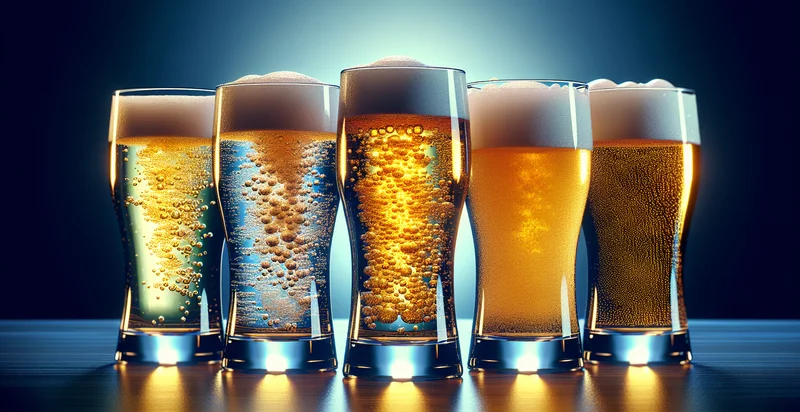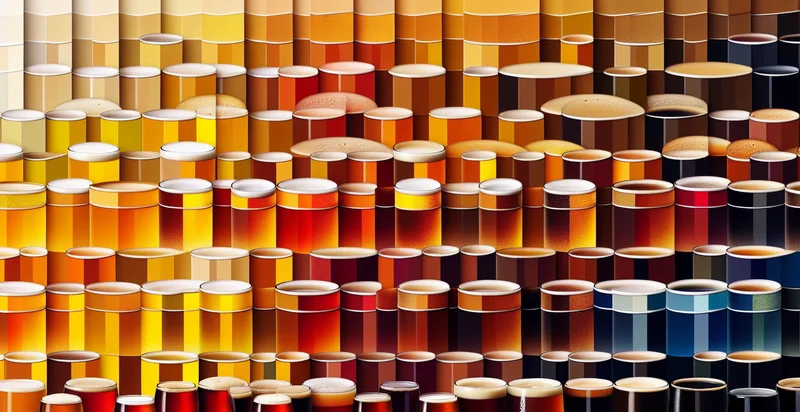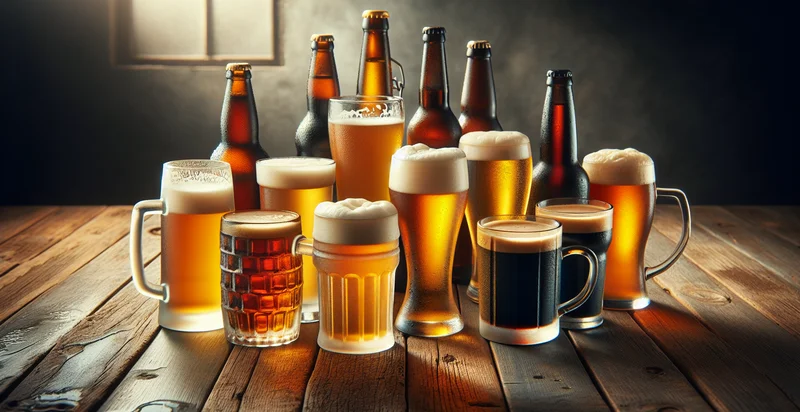Identify beer carbonation levels
using AI
Below is a free classifier to identify beer carbonation levels. Just upload your image, and our AI will predict the carbonation level of your beer - in just seconds.

Contact us for API access
Or, use Nyckel to build highly-accurate custom classifiers in just minutes. No PhD required.
Get started
import nyckel
credentials = nyckel.Credentials("YOUR_CLIENT_ID", "YOUR_CLIENT_SECRET")
nyckel.invoke("beer-carbonation-levels", "your_image_url", credentials)
fetch('https://www.nyckel.com/v1/functions/beer-carbonation-levels/invoke', {
method: 'POST',
headers: {
'Authorization': 'Bearer ' + 'YOUR_BEARER_TOKEN',
'Content-Type': 'application/json',
},
body: JSON.stringify(
{"data": "your_image_url"}
)
})
.then(response => response.json())
.then(data => console.log(data));
curl -X POST \
-H "Content-Type: application/json" \
-H "Authorization: Bearer YOUR_BEARER_TOKEN" \
-d '{"data": "your_image_url"}' \
https://www.nyckel.com/v1/functions/beer-carbonation-levels/invoke
How this classifier works
To start, upload your image. Our AI tool will then predict the carbonation level of your beer.
This pretrained image model uses a Nyckel-created dataset and has 8 labels, including Carbonated, High, Low, Medium, Not Carbonated, Overly Carbonated, Slightly Carbonated and Very High.
We'll also show a confidence score (the higher the number, the more confident the AI model is around the carbonation level of your beer).
Whether you're just curious or building beer carbonation levels detection into your application, we hope our classifier proves helpful.
Related Classifiers
Need to identify beer carbonation levels at scale?
Get API or Zapier access to this classifier for free. It's perfect for:
- Quality Control in Breweries: Breweries can utilize the beer carbonation levels identifier to monitor and ensure consistent quality in their products. By automating the measurement of carbonation levels, they can detect deviations that may affect taste and consumer satisfaction.
- Product Development: During the beer development process, brewers can use this function to experiment with various carbonation levels. This allows them to create new beverages that cater to specific consumer preferences, enhancing innovation in product offerings.
- Consumer Feedback Analysis: The identifier can be integrated into consumer feedback systems to assess whether reported carbonation levels align with the intended product specifications. This helps breweries understand consumer perceptions and improve product formulations based on data-driven insights.
- Market Research: Companies can use the beer carbonation levels identifier to analyze market trends, comparing carbonation levels across competitive products. This data can inform strategic marketing decisions and help identify niche markets for highly carbonated or low-carbonated beers.
- Supply Chain Optimization: Beverage distributors can employ this function to ensure that the carbonation levels of products during transportation remain stable. This would enhance product integrity and prevent the loss of quality, thereby minimizing returns and customer complaints.
- Compliance and Standards: Regulatory bodies or industry associations can use the carbonation levels identifier to set and enforce standards for beer carbonation within the industry. This ensures that all products meet certain quality levels, thereby protecting consumers and promoting fair competition.
- Home Brewing Guidance: Home brewing kits can include this identifier as a tool for amateur brewers to gauge the carbonation of their homemade beer. This feature enhances the brewing experience by providing feedback that can lead to better end products and increased customer satisfaction.


